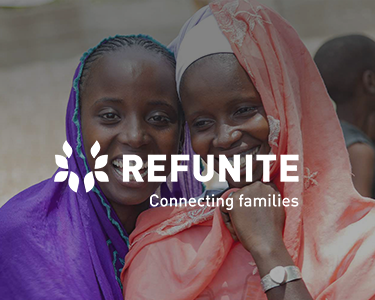For any family or community, addition of a new member is something that usually brings joy and extra responsibilities.
Then imagine what the horde of newly naturalised citizens of Tanzania can do to the East African nation that is already struggling to overcome numerous hurdles on its path to socio-economic development.
Thanks to the legacy that the nation’s founder leader Mwalimu Julius Kambarage Nyerere handed down to his successors, Tanzania abides by the principle of generosity and care for refugees from other countries.
In 1983 Nyerere was awarded the UN Refugee Agency’s Nansen Medal in recognition of Tanzania’s exemplary record and generous policy towards refugees in general and, particularly, to those who were uprooted from their home countries by conflict and persecution.
Since the 1960s Tanzania became one of the most important asylum countries in Africa while wars for liberation from colonialism and apartheid intensified on the continent.
Disappointingly, however, the guns were not silenced in all parts of Africa after independence. Some nascent nations quickly slipped into conflict situations that intermittently put their people on the run for safety in other countries.
Tanzania has all the time remained a haven of peace shielding the roily neighbourhood of the Great Lakes region. Of all troubled areas in the region, Burundi stuck out as the worst black spot.
Since the early 1970s hundreds of thousands of Barundi have found refuge in Tanzania. Until now the UN High Commissioner for Refugees (UNHCR) lists their country among top five protracted refugee situations in the world.
No wonder, therefore, the UNHCR has been very eager to witness the naturalisation and final repatriation of Barundi refugees as a historic development, because it marks the closure of one of Africa’s longest standing refugee situation.
On that account, 15 April 2010 goes down the annals of the refugee agency as the day when UNHCR officials heaved a big sigh of relief after the Tanzania government proclaimed the naturalisation of 162,256 erstwhile Barundi refugees.
“Let me be the first person to welcome you as Tanzanians and not refugees,” said Home Affairs minister Lawrence Masha, posting at Katumba settlement in the western Rukwa Region the formal notification list of the new citizens.
Masha’s statement found an echo in the Burundi capital Bujumbura where the authorities welcomed “with gratitude and relief” the naturalisation decision taken by Tanzania, according to Burundi’s Solidarity Minister Immaculee Nahaoya. “No country in the world has ever done that,” she said.
Indeed, Bujumbura had every reason to rejoice. In their own country, the Barundi are still striving to put their house in order after wasting over a decade in a bloody ethnic-based conflict. The government faces a big challenge to instill fiscal discipline in its own ranks and at the same time ensure national peace in the run-up to national elections scheduled for June this year.
UN High Commissioner for Refugees António Guterres too has lauded Tanzania’s leadership for its “unprecedented generosity and courageous decision” to finding lasting solutions for the refugees.
“This is a historic moment and the best possible solution to these people and we are extremely happy”, said Guterres who visited Katumba to witness the occasion.
UNHCR had never experienced a refugee naturalisation at such a scale anywhere in the world and it was for that reason Guterres appealed to other countries hosting refugees to follow Tanzania’s example, especially where voluntary repatriation is not an option, said Eveline Wolfcarius, UNHCR Public Information Officer in Tanzania.
Now as citizens of Tanzania they have their legitimate place in society and qualify for every civic right under the Constitution. But at the same time they must confront many of the same challenges as nationals do around the country as there would be no spoon-feeding to anyone.
Luckily, while under the charge of UNHCR their children did not miss out on schooling; medical care was always within reach as were several other vital services. After settling in places of their choice across the country, they are expected to use their skills and assets to establish their self-worth in communities.
According to observers of the situation in Burundi, the naturalisation of such a big number of people has saved the east-central African country from a potentially-explosive situation.
Had the former refugees opted for repatriation, Burundi would face a risk of reversal to the bad old days over land disputes. According to UNHCR, 80 percent of the refugees were born in Tanzania.
Initially, completion of the naturalisation process was timed for the end of 2008 but the process took a long time due to changes on the government side, which prompted the introduction of new procedures including fingerprinting, checks on criminal background and scrutiny by security committees and the citizenship processing unit of the Immigration Department.
After sifting all available evidence on 164,449 refugees who had applied for Tanzanian citizenship, 98 percent were approved. Those who were turned down can appeal for reconsideration within 30 days of notification.
But that will be their last chance and if they lose out on that the UNHCR and the governments of Burundi and Tanzania will have to take a joint decision on their future resettlement. It is understood that some applications were rejected either on grounds of criminal record or some uncleared allegations.
Many of the old ones who arrived in Tanzania in the 1970s faced a hopeless and uncertain future but they have survived to see the opening of a window of opportunity in their new country. Their immediate requirement once the government hands out citizenship certificates will be land on which to build their homes and carry on with agro-based activities or any other business.
“After they move out of the refugee settlements, UNHCR is committed to continue supporting them until full integration in Tanzanian communities,” Wolfcarius said.
The Tanzanian government, according to the official, will come up with local integration plans to which UNHCR intends to provide support in terms of cash grants to the new citizens and other assistance that can enhance the capacity of provision of social services in the communities and districts where they would settle.
“UNHCR will give individual transition support to the newly naturalised and support targeted social services interventions in the districts of final destination. Direct UNHCR interventions will continue until the end of 2011,” Wolfcarius explained.
She added: “We are urging the government to give out the certificates as soon as possible so that they can move out of the [refugee] settlements. That’s where the most challenging part of the process of naturalisation begins … the final integration.”
Meanwhile, the government is working on an integration and relocation plan that is based on the regions in which the new citizens indicated that they preferred to settle permanently. Alongside that plan, it has to sensitize local communities about the whole issue of integration in order to avert the possibility of clashes with new members.
For Fidelitha Momenye, 25, a final-year sociology student at the University of Dar es Salaam, the naturalisation came just in time. She had the privilege to be the first of the refugee settlements resident to be handed over her naturalisation certificate by the minister.
Thanks to the Albert Einstein German Academic Refugee Initiative, also known by the acronym DAFI, a small number of the new citizens have been supported to undergo tertiary education in Tanzanian institutions.
“It is a milestone in my life which will open new opportunities,” said Momenye. “I was born here, educated here, taught by Tanzanian teachers and helped by many Tanzanians all my life. I am ready to use my knowledge for the benefit of my country and community,” she pledged.
The DAFI programme contributes to skills development, empowerment and academic achievement as part of a broader UNHCR strategy of promoting self-reliance and durable solutions for refugees.
Festo Crispin, a representative of the new citizens, thanked the government of Tanzania and pledged “that we shall be exemplary citizens …[and] we will continue to need your guidance and support until we are able to stand on our own.”
Welcoming the new nationals Masha said: “Effectively they have all the rights of every Tanzanian. They are free to go anywhere and enjoy the full benefits of citizenship. They are free to seek employment anywhere and free to continue life as normal Tanzanians.”
Tanzanians believe in the value of communities in which nobody is marginalised. And working together with the new citizens, they can make it better as one big family.
In human experience, however, the past has a way of leaving its scars either physically or psychologically. For the new Tanzanian nationals, the scars of their past should be an inspiration to contribute not just to the development of their acquired nation but also to ongoing international peace-building efforts in the Great Lakes region.
Source: This Day
By Anaclet Rwegayura


